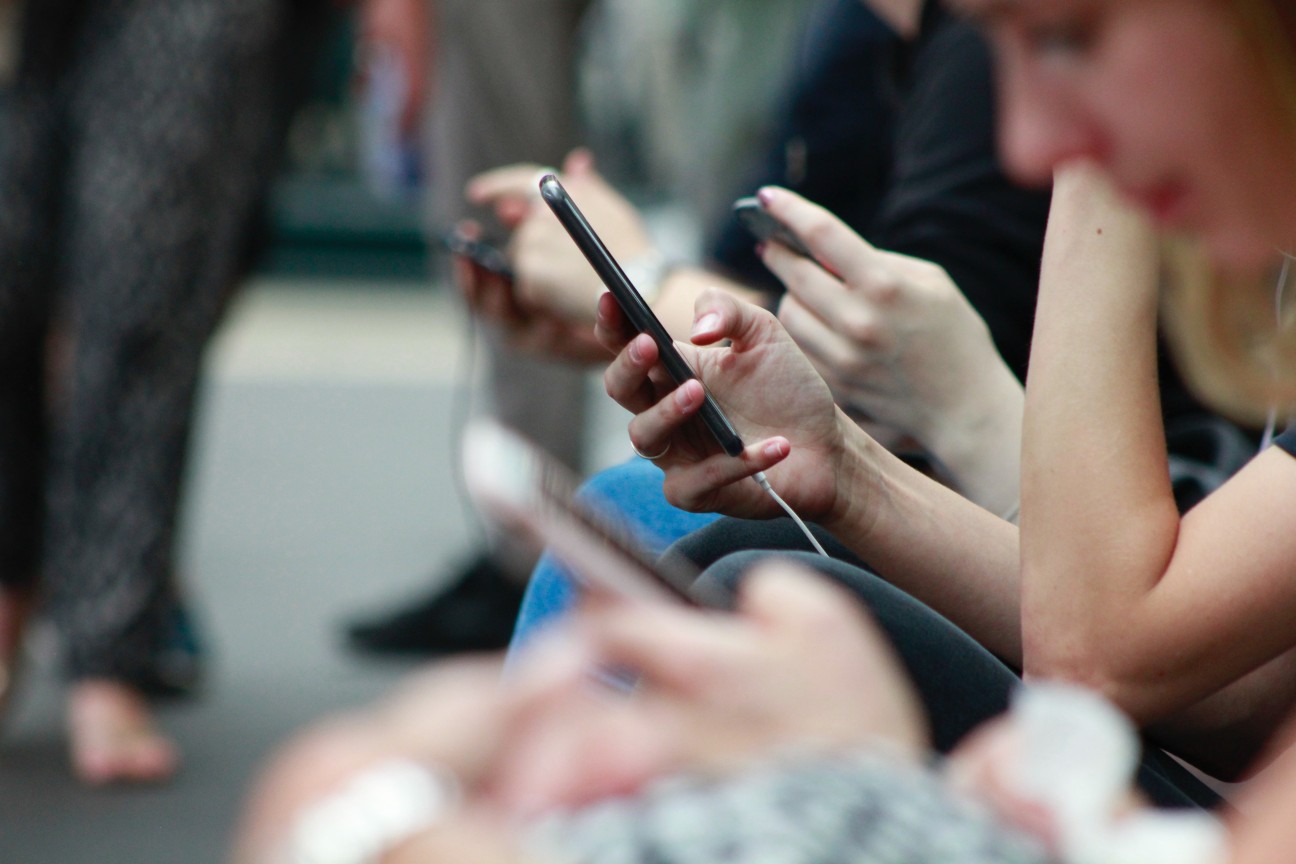A smartphone can be considered an essential tool especially for those living a fast-paced life. While the convenience of having one is undeniable, most of us fail to realize that we’re becoming dependent on it. Dependence, when taken to the next level, becomes an addiction. Phones continuously evolved up to the point that they are convenient to replace some basic human functions such as socializing, movement, and even our ability to think. This is what makes phone addiction an alarming issue for our generation.
Modern psychology has already classified phone addiction as a form of behavioral addiction. Phone users themselves started to notice a common trait developed through the prolonged use of phones that they coined the phrase “no mobile phobia” or nomophobia for short.
What makes phones so easy to get hooked on lies with how they were designed to cater to almost every kind of consumer. Ever since mobile phones became commercialized for the masses, developers intentionally designed each succeeding model to be more entertaining and addictive than its predecessor. Along with an endless variety of applications available for download, it can cater to everyone’s definition of entertainment and trigger various regions of our brain to release small amounts of Dopamine. The same chemical which makes us feel good and what keeps us coming back for more. Like most Dopamine-induced addiction, it usually begins as a mild habit that gradually develops into a form of dependence through repeated phone usage.
Believe it or not, phone addiction is pretty much legit and it is happening all over the world. If you’re one of those people who admits that you’re spending too much time on your phone, you probably want to know the first step to overcoming this compulsion.
Overcoming phone addiction starts with the mind. Awareness allows you to get to the root of the addiction and what made you resort to phones to find happiness. Discipline allows you to resist the urge caused by Dopamine and a strong WILL will empower you to take control of your life.
Modern phones and applications are designed to bait people, that’s a given. However, continuously blaming this fact will not change your situation. Phones will only get better and better as time goes by and there’s nothing much you can do to stop the continuous progression of technology.
But once you start to accept this truth, it will serve as a wake-up call for you and will prompt you to take action on what you can change. It is your mindset and habits. Regardless of whether you’re suffering from phone addiction or not, we’re here to tell you why you should stop using your phone too much.
Here are some phone addiction interesting facts and statistics that may raise awareness of how serious the situation is:
- 93% of Americans between the ages of 18 to 29 were reported to use their phones to avoid boredom.
- Moment, a phone time tracking app with almost 5 million users, reports that the average person spends around 4 hours a day using their phone.
- The time spent by people on their phones creates micro-distractions that inhibit our working efficiency and productivity.
- Statistics show that the generation of people born at an age where phones are already existent has a higher rate of depression and suicide cases compared to previous generations. This was mostly attributed to a lack of physical human interaction which is commonly observed in people who grew up using smartphones.
- There have been around 20,000 cases of phone-related motor accidents in the U.S. from 2012 to 2017.
- Several studies have proven that the small amount of radiation from mobile phones significantly contributes to recent cases of insomnia around the world.
- 1 out of 10 ten phone users admitted to a habit of checking their phones during sex.
While these statistics may not seem like a big deal to most of us, its effects on society may suggest otherwise. As more and more studies expose the risks of excessive phone use, they all result in one conclusion. Once we’re no longer keeping our phone usage in check, it’s hard for us to identify that we’re already in too deep with the addiction.
Think you may be suffering from phone addiction or nomophobia? Check the following signs:
- Having a hard time completing tasks at home or the office due to frequent interruptions from your phone.
- Having a constant FOMO or fear of missing out.
- A feeling of restlessness while being away from your phone.
- Isolating yourself from real-world family and friends and feeling more at home with online friends.
- Feeling aggravated when something interrupts your phone time.
- Phantom vibrations or experiencing vibrations that aren’t happening in reality.
The signs mentioned above are more specific for phone addiction but may still include other clinical signs of behavioral addiction.
Table of Contents
Self Help Methods to Overcome Phone Addiction
If you feel that you need to stop any unpleasant phone-related habits, there are plenty of techniques you can try out to break the phone’s control of your life.
Keeping tabs on how much time you’re spending on your phone is a great way for you to better understand the issue and come up with possible solutions.
Some phones like iPhones have a built-in timekeeper in their settings. There are also many screentime monitoring apps available for download to serve this same purpose.
Knowing how much time you’re spending on the phone might serve as a wake-up call for you to start a phone diet.
While phones can have an addictive side to them, nobody can deny the convenience they bring to us. Since their commercial introduction, developers continue to add more practical features making them more and more indispensable.
From messaging, organizing your schedule, to being a portable googling device, proper use of phones can be helpful on some tasks and save you a lot of time.
“I want to stay off my phone and just get a good undisturbed sleep. But how do I stop looking at my phone in the middle of the night?”
Most phone users may have asked themselves this question at one point. But the answer is really simple. Avoid sleeping in the same room where you’re keeping your phone.
Phone radiation and frequencies have been attributed to sleeplessness at night. Also, hearing notifications in the middle of sleep excites your brain into waking up. Placing your phone somewhere out of reach while you’re sleeping helps lessen the chances of you trading your sleep for some time in front of the screen.
How do you end up spending so many hours on your phone?
There must be something in there that’s eating away the time. Try to assess your habits and identify what contents of your phone trigger your desire to slip away into the virtual world. Ask yourself if you need it and if having will bring out the best in you.
You should start deleting some unproductive phone apps that are eating a large chunk in your daily life. Use the phone for its original purpose. To communicate. Although a bit of internet browsing can be beneficial from time to time, make sure that you’re setting a limit to how much time you’re spending online.
Whatever kind of addiction you may be experiencing, having a support group is an effective way of overcoming this condition. These can be your family, your real-life friends, or a group of people looking to overcome the same problem.
Some may feel more comfortable living in a virtual world, having a vast network of online friends. Along with an endless array of channels to connect with people, it’s no wonder why we become attached to our phones. But what happens when you stop using your phone today?
Once you start putting less time in the virtual world, you start to get back in touch with the real world. Spending more time in the real world helps you build personal connections with people. Where you begin to realize that the people that care the most about you are those who know the real you.
If you feel that self-help methods are not working out for you, seeking professional advice for addiction is also an option.
Conclusion
Smartphones have evolved enormously since their introduction to society. It may not be too far-fetched to say that phones have now become a crucial part of life. Living without a phone in modern society is a bit unrealistic. There’s no stopping how technology will overwhelm our understanding especially in this age where technology seems to be evolving at an exponential rate.
But no matter what kind of addiction is troubling you, remember that you’re the one holding the key to unlock the chains binding you. Tools are tools, and should never be the ones in control over your life. It is you and only you who can take charge of your own life.
“Chains of habit are too light to be felt until they are too heavy to be broken.”
–Warren Buffett
How Is Your Phone Changing You?









